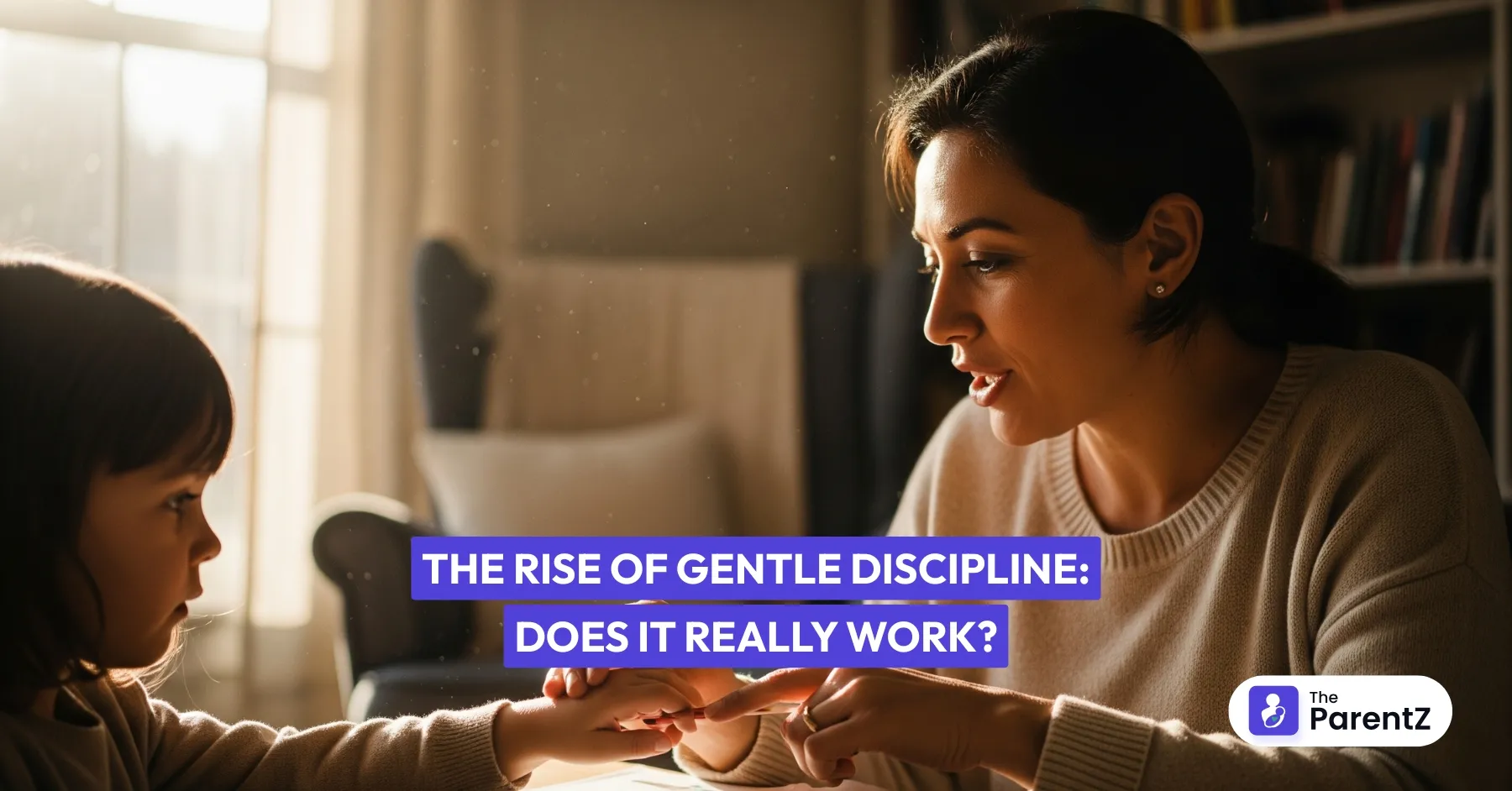If you're a parent in 2025, you've probably been bombarded with gentle parenting content. It's everywhere, from TikTok, Instagram, to parenting blogs. The promise is appealing: raise kind, emotionally intelligent kids without yelling, timeouts, or traditional punishments. But here's what nobody's telling you in those viral posts: it's complicated, and it doesn't work the same way for every kid or every family.
What Is Gentle Discipline?
Gentle discipline isn't about letting your kids run wild or never saying no. At its core, it's about understanding that behavior is communication, responding to your child's needs while still maintaining boundaries, and teaching rather than punishing.
The basic idea is simple: instead of "You're in timeout for hitting your sister," you'd say something like "I see you're frustrated. Hitting hurts. Let's find another way to solve this problem." You acknowledge feelings, set limits, and guide toward better choices.
Sounds reasonable? In theory, yes. In practice? That's where things get messy.
Why Is It So Popular Now?
Several things have come together in the last few years to boost gentle discipline’s popularity:
- Parents want a kinder way to raise kids that doesn’t involve yelling or harsh punishments, which most agree can cause emotional harm.
- We understand more about childhood development and how kids learn emotions and social skills.
- The stress and pressures on kids today, including social media, uncertainty, and school demands, make empathy more important.
- Many millennial and Gen Z parents value emotional intelligence and connection, often openly sharing their parenting journeys online.
The Good: Why Gentle Discipline Works
Parents who try gentle discipline often say it helps build stronger bonds with their kids. When children feel heard and respected, they develop a secure sense of trust and are more willing to cooperate.
It also helps kids understand their emotions better. Instead of just being “punished” for bad behavior, they learn why certain behaviors aren’t okay and how to express themselves in healthier ways.
Gentle discipline can reduce power struggles because children feel like partners in the process, rather than just being ordered around.
Studies show that positive discipline approaches like this can reduce stress for both parents and kids, and even improve kids’ academic and social skills over time.
The Challenges of Gentle Discipline
Here's what the Instagram posts don't show you:
- It Requires Patience (a Lot of It): Kids don’t change overnight, and trying to always respond calmly to tantrums or defiance when you’re tired or stressed is hard. Many parents report feeling like they’re “hanging on for dear life” trying to keep cool all the time.
- It Can Blur Boundaries Sometimes: Some kids, especially those who are naturally more stubborn or energetic, may test limits more when gentle discipline is too soft or inconsistent. If boundaries aren’t clear and firm enough, kids can get confused about what’s allowed and what’s not.
- It Can Feel Like You're the Only Adult: Gentle discipline asks parents to be empathetic but also the “grown-up in charge.” Balancing kindness with authority can be tricky. Some parents find themselves being “the friend” to their kids rather than a parent, which can lead to struggles later on.
- The Real World Isn’t Always Gentle: While gentle discipline works well at home, many parents worry about how their child will handle school, peer pressure, criticism, or failure in the outside world, where rules aren’t as soft as they are at home.
The Reality Check: What Parents Are Actually Experiencing
Recent research found that over 40% of self-identified gentle parents are dealing with burnout and self-doubt because of the pressure to meet these parenting standards. That's not a small number; that's nearly half of parents trying this approach feeling overwhelmed by it.
A 2025 study suggests that while gentle parenting might be beneficial for kids, their parents aren't always so lucky. The emotional labor required is intense. You're constantly regulating your own emotions while helping your child regulate theirs. You're explaining everything, validating feelings, and trying to stay calm when your 4-year-old is having their third meltdown of the day.
One parent shared their experience: "My 2nd child with a touch of ADHD, that doesn't work for. No amount of time-outs, consistency, clear expectations, or anything else has worked. All of these normal parenting tactics lead her into a rage spiral." This is the reality many parents face. What works for one child doesn't work for another, and gentle discipline isn't a magic solution.
The conversation around gentle discipline is shifting. Parents are questioning whether gentle parenting is actually too rough on them. There's growing awareness that the all-or-nothing approach promoted on social media isn't realistic for most families.
Should You Try Gentle Discipline?
If you’re thinking about gentle discipline, here’s what to keep in mind:
- It encourages connection and respect, which benefits long-term emotional health.
- It’s not about never having rules or consequences. Setting boundaries is still important—you just do it with empathy.
- It takes practice and patience. Nobody’s perfect, and it’s okay to slip up and start again.
- It might not work the same for every child or family situation. Flexibility matters.
In other words, give it a genuine try, notice what works and what doesn’t for your family, and be open to adjusting along the way. There’s no one “right” way to parent.
Conclusion
Gentle discipline is more than a trend; it’s part of a bigger shift in how we think about parenting. It honors kids as individuals with feelings and teaches parents to slow down and connect deeply.
But real parenting today is complex. Kids face unique challenges, and parents face pressures like never before. Because of this, gentle discipline by itself might not always be enough and that’s okay. Mixing empathy with firmness, flexibility with clear limits, and self-compassion with growth can help us handle this journey better.





Be the first one to comment on this story.